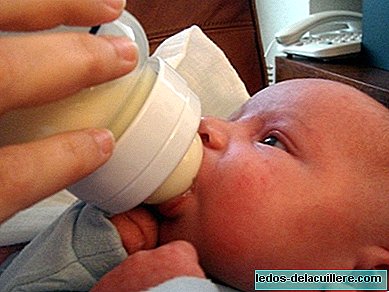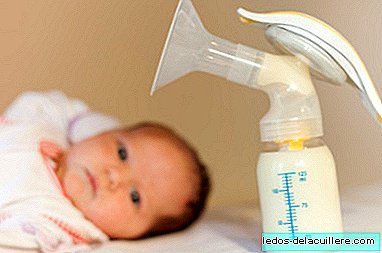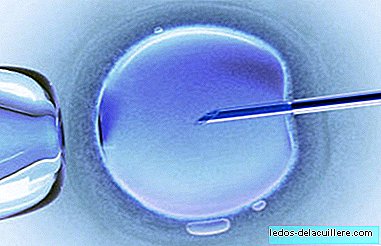
Breast milk is the ideal food for babies, it contains prebiotics, probiotics, defenses and hundreds of substances that no other milk has at all times to adapt to the needs of the baby.
For some time some formulas for infants are including probiotics among its components and as a result of its appearance some studies have been done to assess its effectiveness in preventing diseases.
A study of 201 children shows that those who are fed with formula milk to which probiotics have been added suffer fewer diarrhea episodes and these have a shorter duration than children who are fed with normal formula milk.
Despite this, the highest health agencies (ESPGHAN) do not recommend its use at the moment according to which children (at the end of the entry I explain).
For the study, all children, aged between 4 and 10 months, were divided into three randomized groups. They must have been born at term and have been drinking artificial milk for at least two weeks before.
As a clarification, I want to comment that Probiotics are live microbes that can provide certain benefits to our body. Most of them are what are known as lactobacilli and bifidobacteria. In this study, the results with both microorganisms are assessed.
The children of one of the groups were given formula with Bifidobacterium lactis (BL), another received formula with Lactobacillus reuteri (LR) and the latter received normal artificial milk (placebo).
Follow-up medical controls were performed at 4, 8 and 12 weeks and the results were as follows:

As seen in the table Probiotic formulas have a clear impact on the number of diarrhea episodes and their duration, having an insignificant impact on respiratory diseases.
The formulas with Lactobacillus reuteri they had better results than formulas without prebiotics and those that carry Bifidobacterium lactis in its composition.
Despite the favorable results, the recommendation is to be cautious when acting. The study assessed children for a period of 12 weeks (less than three months), too short to conclude that it is a reliable and safe food and short to appreciate the real effect of probiotic formulas for longer periods such and as it happens in real conditions.
This precaution is due to the fact that although in this study and in others there are usually no side effects from taking these types of formulas, some isolated cases of endocarditis, bacteraemia and local infections have been evidenced. These children they already had some disease that predisposed them to it.
ESPGHAN states, in relation to formulas with probiotics that "The data currently available is not sufficient to support the safety of probiotics in newborns and infants with an immature immune system, in immunosuppressed children, in premature children and in patients with congenital heart disease."












